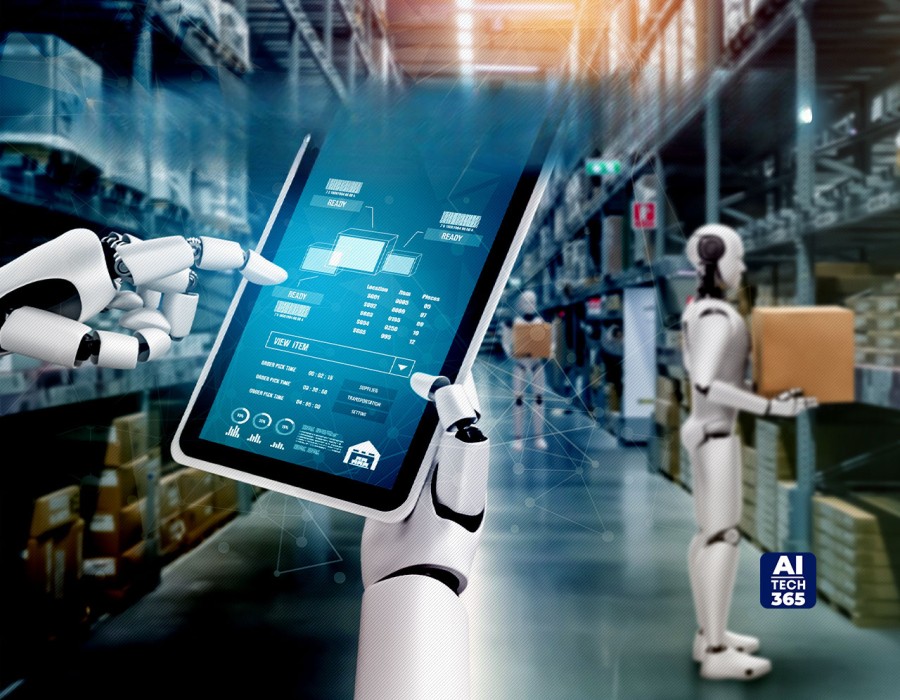The supply chain is a crucial framework that supports business activities, and its efficiency plays a significant role in organizational success. The global pandemic of 2020 highlighted vulnerabilities within supply chains, prompting companies to adopt digital technologies to mitigate future disruptions. Among these, Artificial Intelligence (AI) has emerged as a transformative tool, enhancing supply chain operations and driving innovation across industries. Let's dive into how AI is reshaping supply chain management.
What is AI in Supply Chain Management?
AI in supply chain management refers to the application of artificial intelligence tools and techniques to automate and optimize various supply chain functions. By leveraging advanced algorithms and data analytics, AI enhances operational efficiency, fosters innovation, and improves decision-making throughout the supply chain.
AI plays a pivotal role in areas such as demand forecasting, inventory management, route optimization, risk management, real-time tracking, and process automation. According to research, 37% of companies in the supply chain industry are already reaping the benefits of AI-driven solutions. Furthermore, AI is projected to contribute an impressive $15.7 trillion to the global economy by 2030.
Key Benefits of AI in Supply Chain Management
1. Precise Inventory Management: AI simplifies inventory management by handling vast amounts of data in real-time, reducing errors, and optimizing stock levels. This prevents overstocking or stockouts, enabling smoother warehouse operations and reducing associated costs.
2. Enhanced Warehouse Efficiency: AI-powered automation accelerates warehouse processes by ensuring timely retrieval of items, streamlining operations, and eliminating bottlenecks. This not only saves time but also reduces the need for manual labor, ultimately cutting costs.
3. Improved Safety: AI systems in warehouse management improve safety by analyzing workplace data, identifying risks, and alerting manufacturers to potential issues. They update operational parameters, maintain compliance, and enhance overall safety.
4. Reduced Operational Costs: With AI systems automating various processes, companies can significantly reduce labor costs and human error. Warehouse robots increase efficiency, boosting productivity while lowering operational expenses.
5. Faster Deliveries: AI minimizes reliance on manual processes, making the supply chain faster and more reliable. It eliminates delays and enhances the entire value chain, ensuring on-time delivery.
Will AI Dominate Supply Chain Management?
While AI is drastically improving supply chain management, it’s unlikely to entirely replace human expertise. Successful implementation depends on overcoming challenges such as data integration, organizational restructuring, and workforce training. AI should be viewed as a powerful tool that complements human decision-making rather than replacing it entirely.
How to Utilize AI in Supply Chain Management
AI offers several advanced capabilities to enhance supply chain processes, including:
- Predictive Analytics: AI improves demand forecasting, optimizing inventory and minimizing the risks of overstocking or stockouts.
- Real-Time Tracking & Route Optimization: AI systems track goods in real-time, optimize delivery routes, and reduce fleet downtime, improving overall efficiency.
- Demand Forecasting: AI analyzes signals to predict demand fluctuations and adjust inventory accordingly, helping businesses respond to dynamic market conditions.
- Risk Management: AI identifies potential supply chain disruptions by analyzing historical data and patterns, allowing for proactive mitigation.
- Process Optimization: AI enhances product development, manufacturing, and distribution by considering variables like cost, sustainability, and supply constraints.
- Intelligent Recommendations: AI-driven systems provide insights to optimize working capital and predict potential shortages, improving outcomes such as on-time deliveries.
Final Thoughts
AI is revolutionizing supply chain management by enabling companies to make data-driven decisions, minimizing risks, and optimizing resource allocation. Real-time tracking and advanced analytics improve visibility and allow businesses to stay ahead of challenges. By incorporating AI, businesses can enhance efficiency, reduce costs, and deliver a superior customer experience, positioning themselves competitively in today’s complex supply chain landscape.





Comments